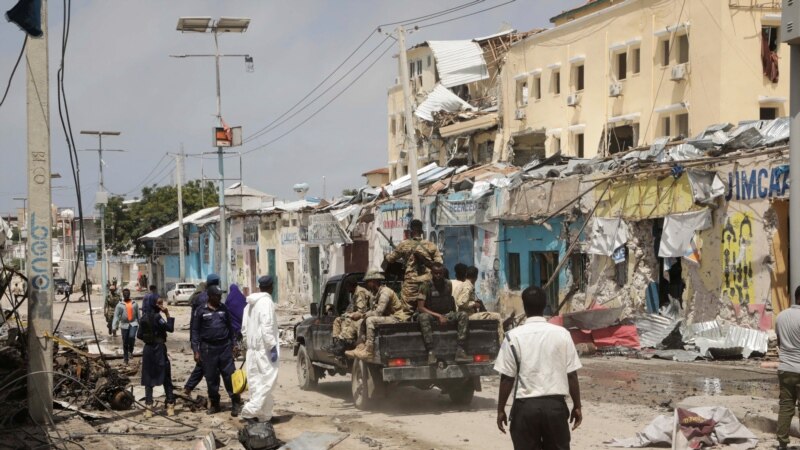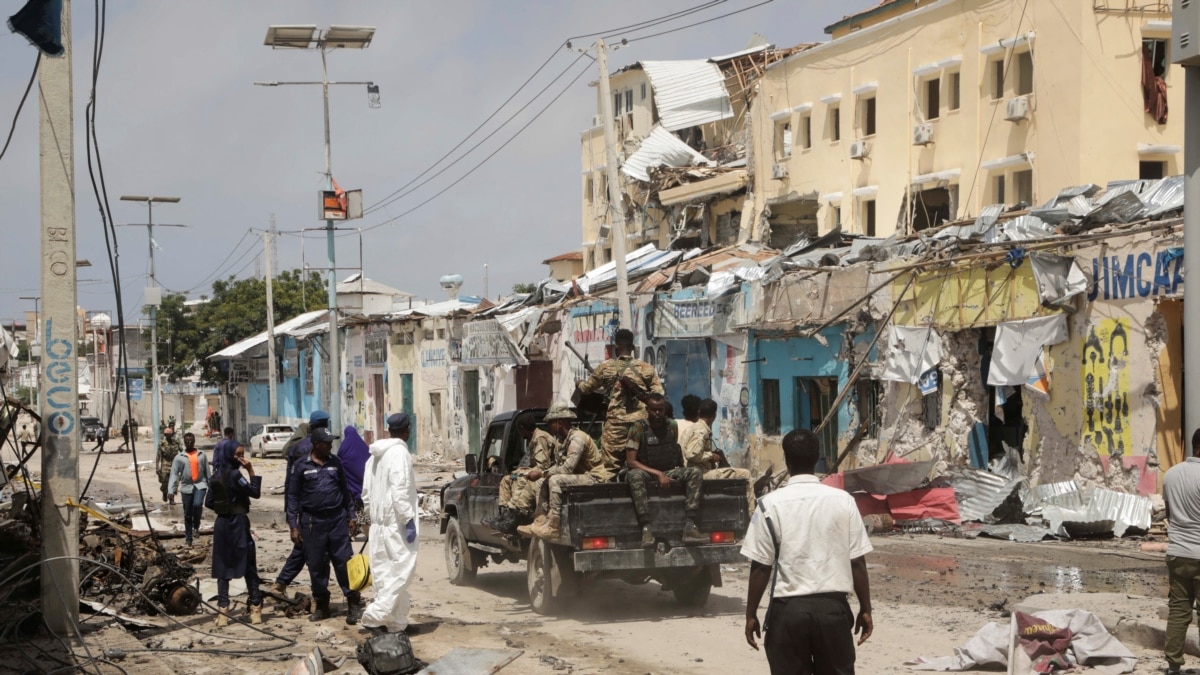This website uses cookies so that we can provide you with the best user experience possible. Cookie information is stored in your browser and performs functions such as recognising you when you return to our website and helping our team to understand which sections of the website you find most interesting and useful.


For years, Somali clans and villages have tried to resist demands from the Islamist group al-Shabab, which can include taxes called "zakat," plus livestock, weapons and boys they can turn into fighters.
And for years, al-Shabab has effectively crushed the local rebellions, usually with ruthless efficiency.
In early 2018, al-Shabab militants took over the village of Gulane, in the Middle Shabelle region north of Mogadishu, and asked residents to "donate" money, rifles and boys. A local farmer, Hibaad Ali Dasar, said he would rather die than hand over his son, who was younger than 12 at the time.
Al-Shabab responded by taking Dasar's grain and burning down his farm, said Adale deputy mayor Mukhtar Mohamed Mohamud, who knew Dasar.
Dasar and other men in the village moved their families to the government-controlled town of Adale and organized a militia of about 60, which clashed with al-Shabab starting in May 2018. They called themselves "Ma'awisley," a reference to the sarong many of them wear.
Clashes continued through the summer of that year. The federal government provided ammunition and some weapons but other no significant support, Mohamud said.
That October, Dasar and several of his men were planning an attack when they were ambushed and killed by two al-Shabab units. The rebellion ended, and the militants got their taxes.
But Dasar's spirit lives on in another mobilization of locals in central Somalia, in the Hiran and Galmudug regions. In June, residents of the village of Bahdo, who have been resisting al-Shabab taxes, fought off a major attack from the group. The leader of Galmudug state, Ahmed Abdi Kariye, said up to 70 al-Shabab fighters were killed.
Kariye described the locals' resistance against the militants as historic.
The Somali government has hailed the local mobilization efforts and is calling for expansion of the resistance to other regions.
President Hassan Mohamud has said he wants to use a new strategy against al-Shabab, to fight them economically as well as militarily, to not just weaken al-Shabab but to eliminate the group.
Will the local militias, who are again calling themselves Ma'awisley, succeed this time?
"The public were always ready to fight al-Shabab," said Kamal Dahir Hassan Gutale, national security adviser to Prime Minister Hamza Abdi Barre. "What is different this time is the government; the president and the prime minister have started to encourage them and stand with them when the community decided to mobilize."
Government troops have joined the local militias in an offensive against al-Shabab in recent weeks, and officials reported taking more than 40 localities from the group. None were large towns, and al-Shabab has since reported retaking several areas.
In one retaliatory attack, al-Shabab fighters killed 20 people and burned food trucks near the town of Mahas last month. On Monday, the group claimed responsibility for three car bombings in Beledweyne, the center of the local mobilizations in Hiran region. It was an apparent attempt to discourage the resistance, killing more than 20 people and destroying local government headquarters.
Monday's attack followed a recent statement from al-Shabab spokesman Ali Dhere, threatening violence against clans that support the federal government.
Gutale said mobilization against al-Shabab has not yet peaked and said he expects more clans to join the fighting.
This mobilization comes at the "right time," said General Dahir Aden Elmi, aka "Indhoqarsho," a former Somali army chief.
Elmi said that in the past there was no coordination between the local militias and the government troops in combating al-Shabab.
"A lot of times the government and the locals fought separately. The locals fought alone, and the government fought alone. The result was a lack of accomplishment," he told VOA.
"If the government supports this [mobilization] with power, I see this will be the way to defeating al-Shabab."



 Africana55 Radio
Africana55 Radio 
